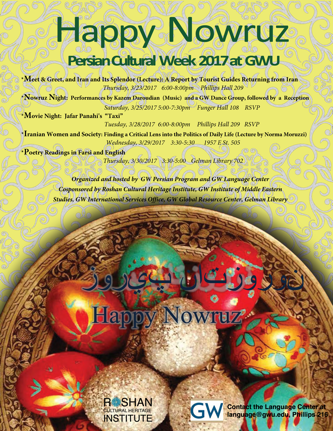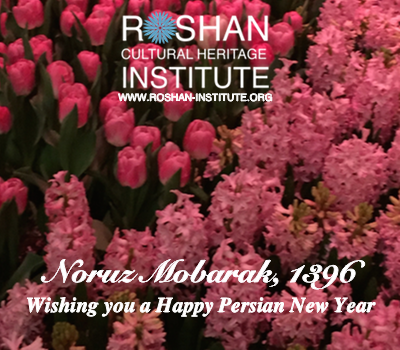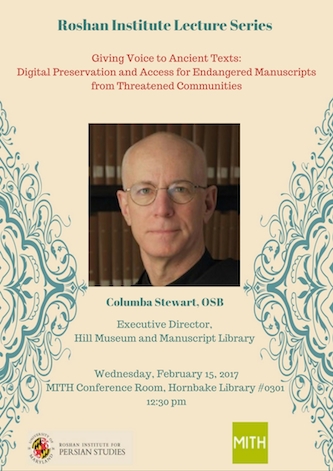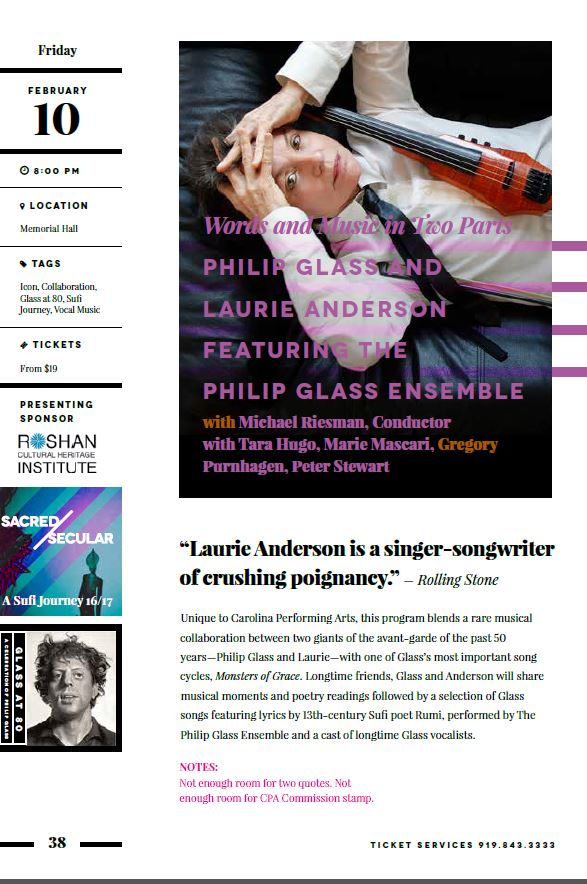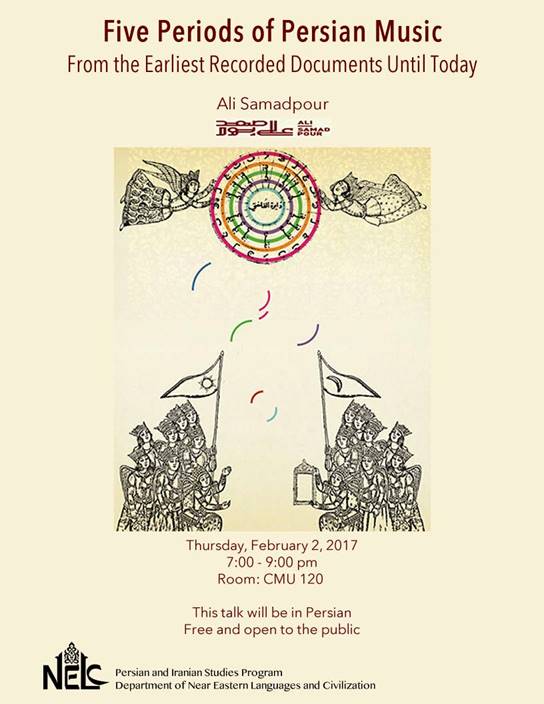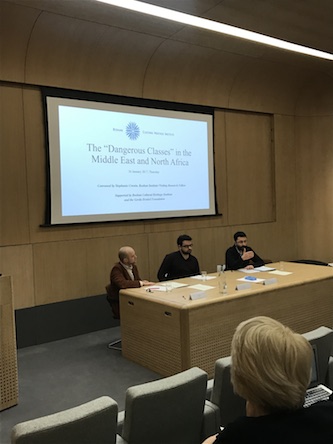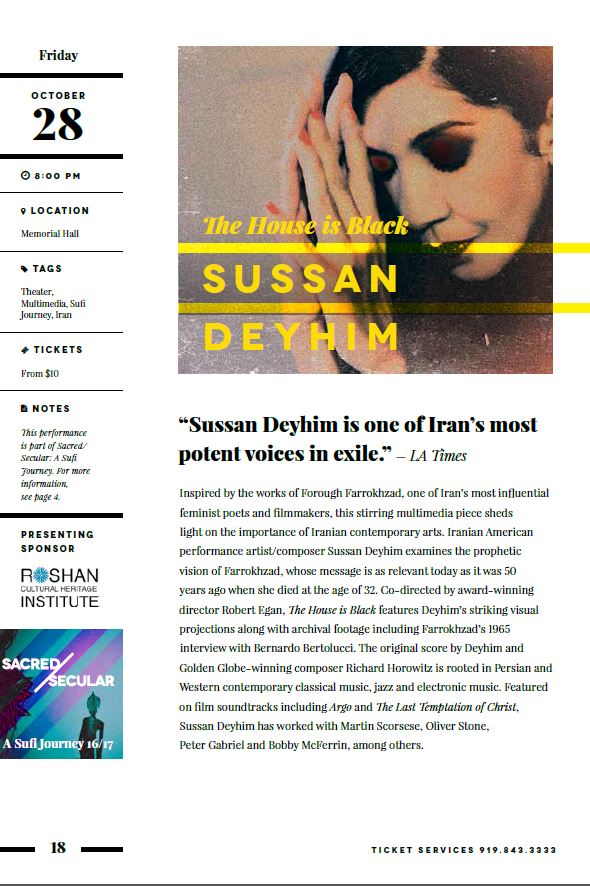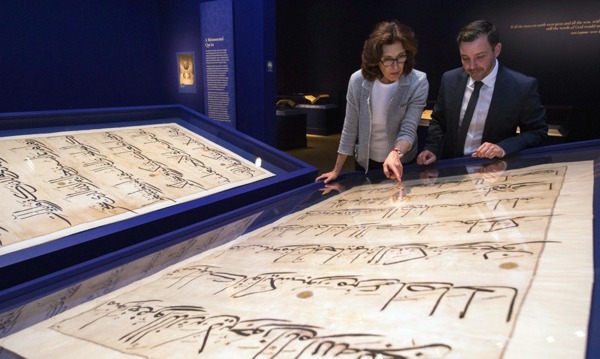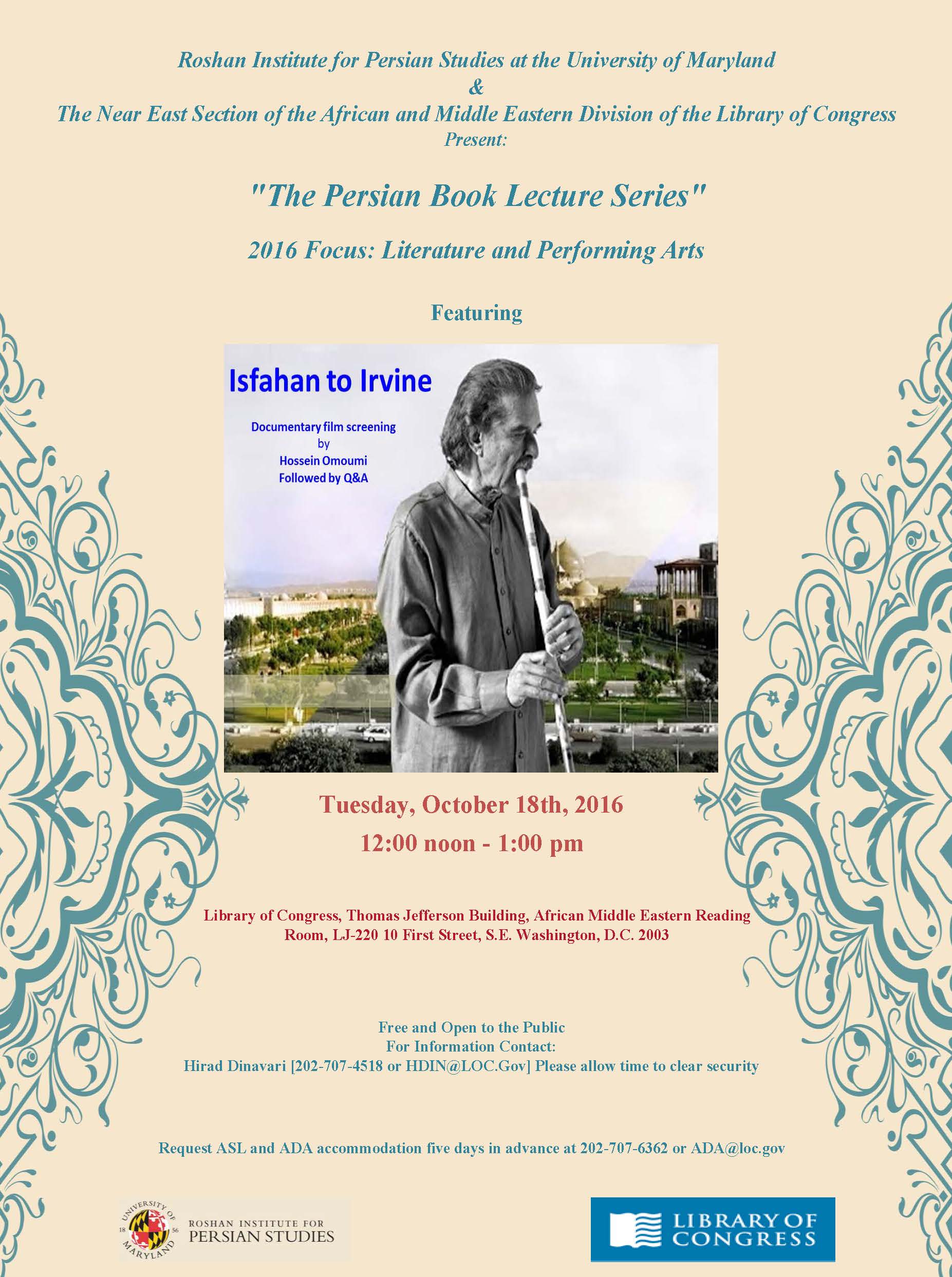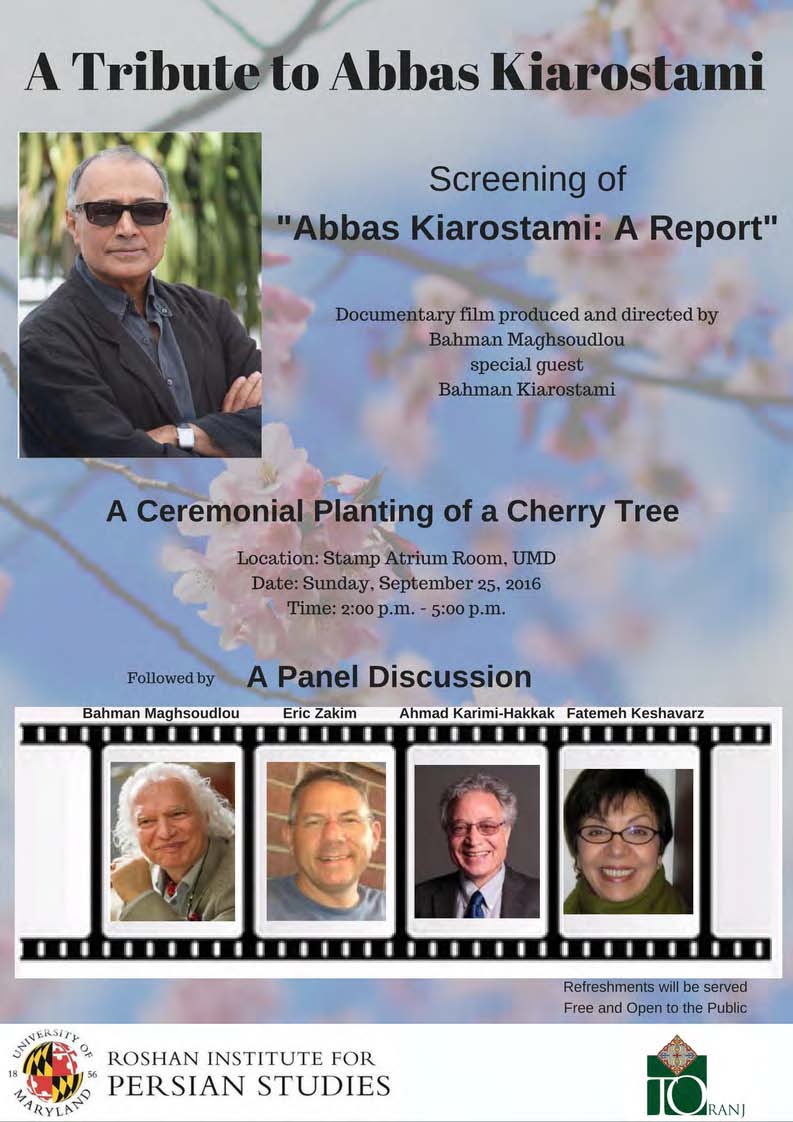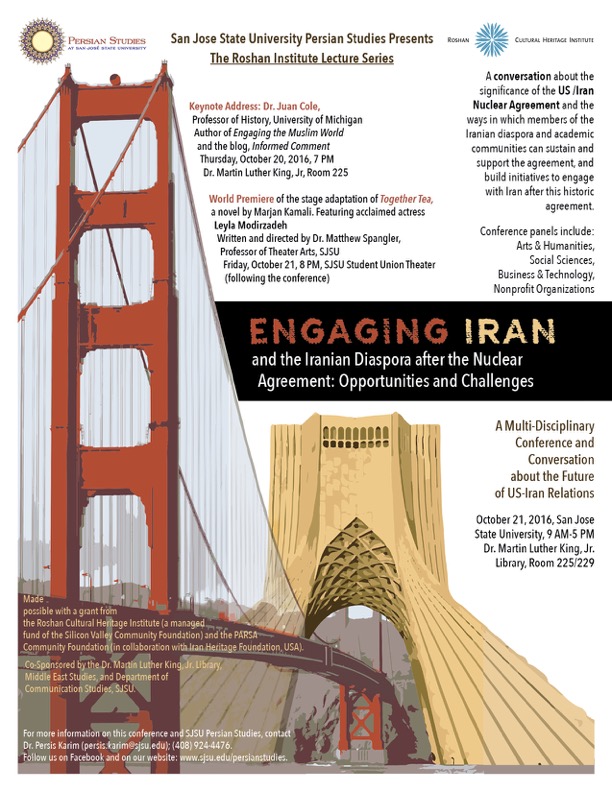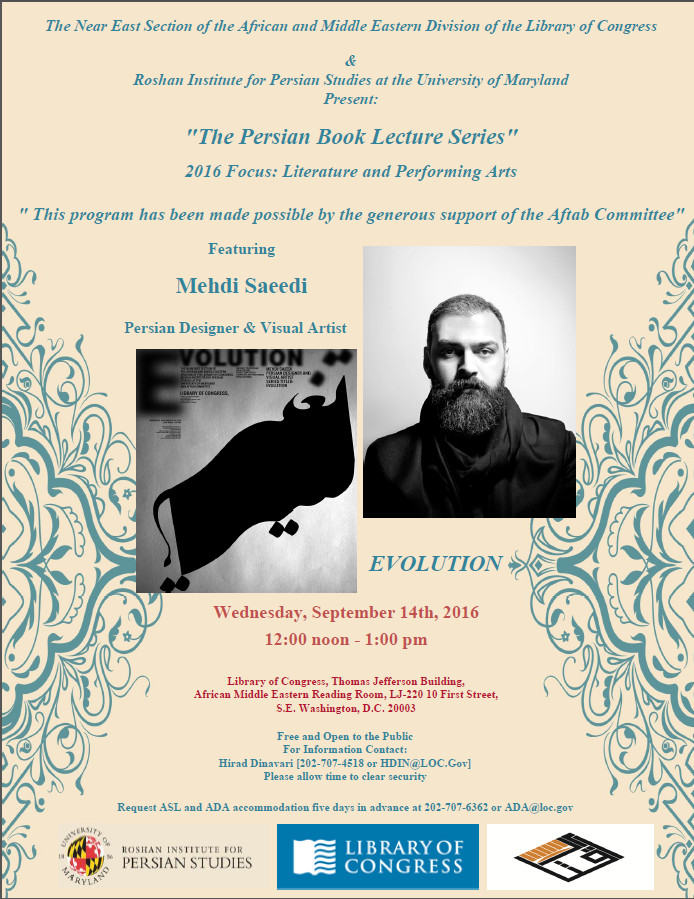Launch of The Elahé Omidyar Mir-Djalali Lecture Series at the University of Maryland, College Park
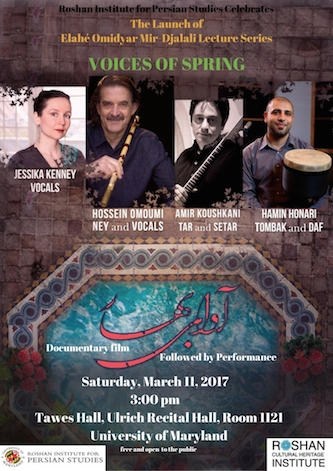
Roshan Cultural Heritage Institute is honored to announce the launch of The Elahé Omidyar Mir-Djalali Lecture Series at UMD Roshan Institute for Persian Studies. The Series is named in honor of Dr. Elahé Omidyar Mir-Djalali, the Founder, Chair and President of Roshan Cultural Heritage Institute.
Roshan Institute for Persian Studies will celebrate the launch of the Elahé Omidyar Mir-Djalali Lecture Series at UMD with an event featuring the documentary film, “Classical Persian Music: Hossein Omoumi from Isfahan to Irvine,” followed by “Voices for Spring,” a concert by Maestro Omoumi and musicians Jessika Kenney, Amir Koushkani and Hamin Honari. Maestro Omoumi is an acclaimed musician, scholar and master of the Persian reed flute called “ney”.
He is the Maseeh Professor in Persian Performing Arts at the University of California, Irvine, and has devoted the past 20 years developing an innovative method for teaching Radif—the large, complex repertoire of classical Persian music. In 2013, he was awarded a Roshan Institute Fellowship for Excellence in Persian Studies for the production of the documentary film that focuses on the life of Professor Omoumi as a performer and teacher from Isfahan to Irvine, as well as on his innovations in the field of teaching classical Persian music.
The event is free and open to the public.
Saturday, March 11, 2017 | 3:00 p.m. – 5:00 p.m. | Tawes Hall, Ulrich Recital Hall, Room 1121 | University of Maryland, College Park



